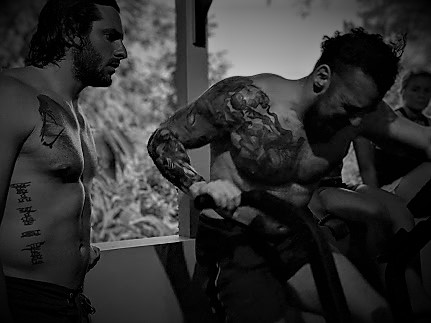Subjective fatigue is such a placebo circle jerk. The illusory etiology of fatigue drives me insane especially as it is currently exploited in the “health” field.
Most people want more energy and are perpetually searching for simple answers.
But what does want more energy even mean!? You want to “feel” better? What is “better”?
This is all a perceived construct based on perceived effort and your perception of how you feel and how you think you should feel.
This is not to say fatigue is not real, but objectively we have no way to measure it.
Fatigue can come from a lack of sleep and/or a lack of quality sleep, chronic over-nutrition, under-nutrition, or nutritional inadequacy. Fatigue can arise or co-present with depression, anxiety, PTSD, infections or cancer. Fatigue can be physical and/or mental and these are always inter-related. Fatigue can result from boredom (understimulation) or overload (overstimulation).
There is NO biomarker for fatigue and asking someone if they are fatigued and why is a self-fulfilling echo chamber.
Most humans in the modern world have chronically under-slept and under-moved for decades while eating a calorie-rich nutrient poor diet. Many humans also perceive their daily effort as very high when they are literally doing not much of anything (myself included).
Maybe, we read some words, play with excel for some amount of hours and answer more emails than we would like. We take this same desk jockey and we put them on a construction crew and they might even be more energized from the change in scenery and uptick in new problems, but physically they are blasted for a few weeks. Then they get used to the new situation and they likely get bored and both physically and mentally fatigued.
You take a construction worker and put him at a desk and same thing…A few weeks of, “oh this is new and cool” and then boredom…understimulation or overstimulation and subjective fatigue.
The novelty always wears off and we humans are and will always be neophiles/neophiliacs.
We can build habits to support/promote proper sleep, nutrition, and movement and we can also work on our underlying awareness of the psychological aspects of subjective fatigue.
“We have identified three components that are essential to understand the occurrence of fatigue:
1) the perception of effort
2) the propensity to exercise effort, which is the product of a decision-making process
3) the motivation, which depends from several factors and will influence the propensity to exercise effort.”
-Pattryn et al. 2018 – Frontiers in Psychology
The best way to think about this is in the gym.
Someone comes in with the ideology and preconceived belief that everything in the weight room is going to be hard, arduous. Thus, everything feels heavy and they stop 22 reps before they would actually fail.
Their perception is running the show. This will likely be every new trainee without a sporting background. They will either meet this demand with vigor or they will buckle from it. Perception and results are one of the reasons it is likely so important to help new clients find out where failure actually is safely. There is a balance here as training to failure is not necessary to drive results, but getting close to failure is and if you never learn what it feels like to really have 1 or 2 reps left in the clip you are doomed to live in the cesspool of mediocrity. #PlanetFitness
These clients who perpetually buckle are extremely hard to deal with as they will always seek out novelty and ways to subvert progressive overload. As a coach you are going to have to assess if they really want results or if they just want to waddle around in their self-grandizing not-real suffering.
The clients that attack training head on are fun and you are likely going to have to rein them in, but not too much…let them go too fast…they likely have to find the red line and maybe even the wall all by themselves. Trained subjects are not invincible against the creeping normality of perceived effort either, this is where training groups are so important as many times we will get stuck on our perceived ability to lift some weight for some ceiling of reps and then we lift with others and find out, “shit I could really do three more reps at that weight.”
And then you realize you’ve been sandbagging it for the last three training cycles.
As you become more trained you get a lot better at knowing where failure is. Your perception of effort matches the actual effort, and thus you are able to make more educated decisions on whether to go for that last rep or not.
I have taken rep maxes to a point where the concentric phase of the last rep is 13 seconds. Most people’s initial move would be to grab the bar to help, but it is still moving ever so slowly and the humans I lift with will give me the opportunity to make the choice. AND this ability to go there in the gym seems to permeate out into other aspects of life and I am honored to know many others who can go there as well as laugh at their own perceived efforts.
Which leads us to awareness of our perceptions.
As you become more aware, you get a lot better at knowing if your fatigue is real, not real, or task specific. Your perception of your effort matches the actual effort and thus you are able to make more educated decisions on what the best course of action is. You also likely know that growth only happens when you overload the system…when you stretch it thin.
You also know that your subconscious is never going to like this feeling. It will perpetually prefer the novelty of scrolling your Instagram feed.



Recent Comments